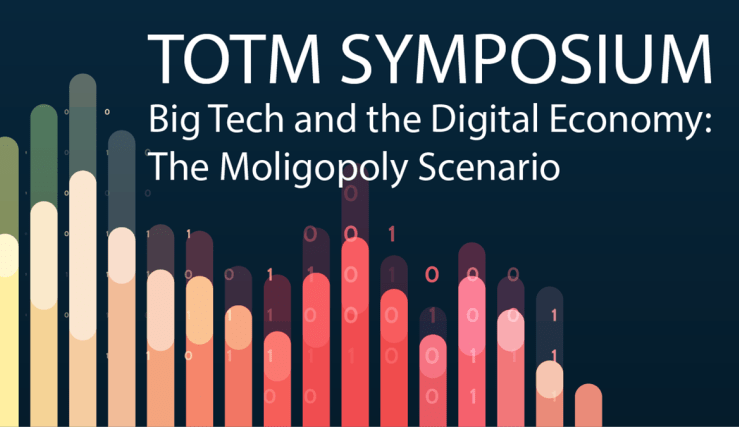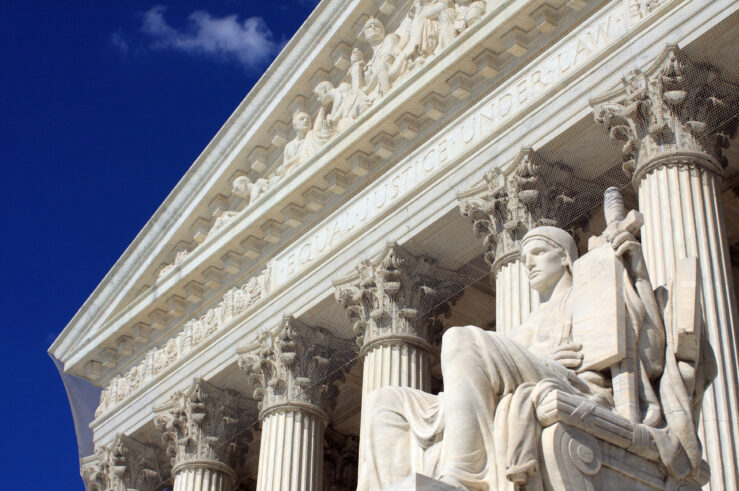Showing archive for: “Unilateral Conduct”
Why Competition Enforcers’ Annual Roundtable Should Focus on Competition Advocacy and Combating Anticompetitive Market Distortions
Spring is here, and hope springs eternal in the human breast that competition enforcers will focus on welfare-enhancing initiatives, rather than on welfare-reducing interventionism that fails the consumer welfare standard. Fortuitously, on March 27, the Federal Trade Commission (FTC) and U.S. Justice Department (DOJ) are hosting an international antitrust-enforcement summit, featuring senior state and foreign ... Why Competition Enforcers’ Annual Roundtable Should Focus on Competition Advocacy and Combating Anticompetitive Market Distortions
Brussels Effect or Brussels Defect: Digital Regulation in Emerging Markets
The blistering pace at which the European Union put forward and adopted the Digital Markets Act (DMA) has attracted the attention of legislators across the globe. In its wake, countries such as South Africa, India, Brazil, and Turkey have all contemplated digital-market regulations inspired by the DMA (and other models of regulation, such as the ... Brussels Effect or Brussels Defect: Digital Regulation in Emerging Markets
FTC Biweekly UMC Roundup – Refugee from the FTC Edition
Faithful and even occasional readers of this roundup might have noticed a certain temporal discontinuity between the last post and this one. The inimitable Gus Hurwitz has passed the scrivener’s pen to me, a recent refugee from the Federal Trade Commission (FTC), and the roundup is back in business. Any errors going forward are mine. ... FTC Biweekly UMC Roundup – Refugee from the FTC Edition
DOJ’s Threatened Reign of Error: Proposed Criminal-Monopolization Prosecutions
The Biden administration’s antitrust reign of error continues apace. The U.S. Justice Department’s (DOJ) Antitrust Division has indicated in recent months that criminal prosecutions may be forthcoming under Section 2 of the Sherman Antitrust Act, but refuses to provide any guidance regarding enforcement criteria. Earlier this month, Deputy Assistant Attorney General Richard Powers stated that ... DOJ’s Threatened Reign of Error: Proposed Criminal-Monopolization Prosecutions
Is There Any Market Power in Online Display Advertising?
A lawsuit filed by the State of Texas and nine other states in December 2020 alleges, among other things, that Google has engaged in anticompetitive conduct related to its online display-advertising business. Broadly, the Texas complaint (previously discussed in this TOTM symposium) alleges that Google possesses market power in ad-buying tools and in search, illustrated ... Is There Any Market Power in Online Display Advertising?
Antitrust Statutorification
A lot of water has gone under the bridge since my book was published last year. To close this symposium, I thought I would discuss the new phase of antirust statutorification taking place before our eyes. In the United States, Congress is working on five antitrust bills that propose to subject platforms to stringent obligations, ... Antitrust Statutorification
The Future of FTC Equitable Monetary Relief after AMG Capital Management
The U.S. Supreme Court’s just-published unanimous decision in AMG Capital Management LLC v. FTC—holding that Section 13(b) of the Federal Trade Commission Act does not authorize the commission to obtain court-ordered equitable monetary relief (such as restitution or disgorgement)—is not surprising. Moreover, by dissipating the cloud of litigation uncertainty that has surrounded the FTC’s recent ... The Future of FTC Equitable Monetary Relief after AMG Capital Management
The NCAA: Dr Jekyll or Mr Hyde?
The U.S. Supreme Court will hear a challenge next month to the 9th U.S. Circuit Court of Appeals’ 2020 decision in NCAA v. Alston. Alston affirmed a district court decision that enjoined the National Collegiate Athletic Association (NCAA) from enforcing rules that restrict the education-related benefits its member institutions may offer students who play Football ... The NCAA: Dr Jekyll or Mr Hyde?
In the Fight Against Qualcomm, Apple’s Loss is Apple’s Gain
Apple’s legal team will be relieved that “you reap what you sow” is just a proverb. After a long-running antitrust battle against Qualcomm unsurprisingly ended in failure, Apple now faces antitrust accusations of its own (most notably from Epic Games). Somewhat paradoxically, this turn of events might cause Apple to see its previous defeat in ... In the Fight Against Qualcomm, Apple’s Loss is Apple’s Gain
How Will the Application of Antitrust Law Change During the Coronavirus Crisis?
[TOTM: The following is part of a blog series by TOTM guests and authors on the law, economics, and policy of the ongoing COVID-19 pandemic. The entire series of posts is available here. This post is authored by Steve Cernak, (Partner, Bona Law).] The antitrust laws have not been suspended during the current COVID-19 crisis. ... How Will the Application of Antitrust Law Change During the Coronavirus Crisis?
Exclusionary Pricing Without the Exclusion: Unpacking Qualcomm’s No License, No Chips Policy
Qualcomm is currently in the midst of a high-profile antitrust case against the FTC. At the heart of these proceedings lies Qualcomm’s so-called “No License, No Chips” (NLNC) policy, whereby it purportedly refuses to sell chips to OEMs that have not concluded a license agreement covering its underlying intellectual property. According to the FTC and ... Exclusionary Pricing Without the Exclusion: Unpacking Qualcomm’s No License, No Chips Policy
The International Competition Network at Seventeen
Introduction Last week I attended the 17th Annual Conference of the International Competition Network (ICN) held in New Delhi, India from March 21-23. The Delhi Conference highlighted the key role of the ICN in promoting global convergence toward “best practices” in substantive and procedural antitrust analysis by national antitrust (“competition”) agencies. The ICN operates as ... The International Competition Network at Seventeen












